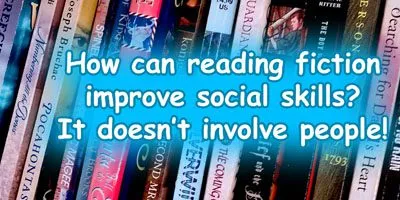Leadership, The Secret (Pt 4): Leadership Riddle
Posted on23 Dec 2013
Tagschange, formal organizational power, informal organizational power, leadership, Performance, Personality, problem solving, relationships, rewards, Leadership - The Secret Series, inspiration, power in personality, leadership riddle, analogy collection, Soup Stock – Problem Solving Analogy
Comments0
Leadership has many definitions. It brings to mind the attempts to define such things as love and beauty. Sometimes, when trying to... Read More
How Psychopaths Become CEO’s (Pt 5) – Relational Preferences
Posted on09 Sep 2013
Tagsconfidence, organizational culture, emotional intelligence, hypocrisy, interpersonal, Personality, power, psychopaths, relationships, rules, style, success, Talent, uncertainty, Psychopath in Workplace Series, charisma, uniformity
Comments0
Psychopaths prefer relationships in which we will tend to: Permit psychopaths to break the rules Be seduced by confidence Misinterpret success for... Read More
Solving the Nonproductiveness of Telecommuting Workforces
The article “Face Time” (The New Yorker, March 18, 2013 edition) by James Surowiecki discusses telecommuting’s downsides by focusing on its interpersonal... Read More
Egocentric, Reserved People (ERP’s)
Posted on21 Jan 2013
Tagsdecision-making process, over thinking, passive-aggressive behavior, Delphine Szwarg, Twitter, Thoughts, self-interest, process, Personality, introvert, introspection, feelings, ego, decisions
Comments0
Delphine Szwarc asked the following of me on twitter: Can one be egocentric and reserved at the same time? More specifically, she... Read More
Relationships: The Ultimate Power
Posted on17 Dec 2012
Tagsinformal organizational power, morale, power, relationships, strategy, training, vision, warfare, Adam Smith, The Daily Show, Jon Stewart, Medal of Honor, Dakota Meyer, Battle of Ganjgal
Comments1
Many say relationships in business are important, but the real question is, “How important are they?” In reality, they are the ultimate... Read More
Emotional Intelligence vs. Intuition (Pt 5): Group vs. Individual
Posted on25 Oct 2012
Tagsdecisions, emotional intelligence, Emotional Intelligence vs Intuition Series, emotions, group, intuition, knowledge, problem solving, religion
Comments0
Previously, I had identified problem solving as an area showing a pronounced difference between Emotional Intelligence (EI) and Intuition. I want to... Read More
How Reading Fiction Improves Social Skills And More
Posted on24 May 2012
Tagsbusines, business planning, Chris Moore, computer simulations, Dalhousie University, emotions, empathy, experience, fiction, introspection, Jennifer Tackett, Jordan Peterson, Keith Oatley, Maja Djikic, military, Personality, planning, problem solving, Raymond Mar, Sara Zoeterman, Scientific American, social skills, University of Toronto, what-if scenarios, York University
Comments4
Most see book worms as socially inept. They use fiction as escape. Yet, studies show that reading fiction improves social skills. This... Read More
Management Tips From Changing Taste Using Stories
Posted on07 May 2012
Tagsfood, IKEA, Ingvar Kamprad, interpresonal, interpretation, intuition, liquor, placebo, Placebo Management Series, politics, presentation, relationships, storytelling, T.A. Breaux, Talent, taste, The Atlantic, Wayne Curtis
Comments0
Storytelling plays a valuable role in marketing. It seems though with foods it plays another role. That is one of changing taste... Read More
Reflection Tip to Build Strong Relationships in Conversations
We often don’t learn the value of listening techniques in building relationships. Consequently, people might not realize we are listening; the reflection... Read More
Relationship Building Technique #7: Summarization
Posted on16 Apr 2012
Tagsconfidence, facts, ideas, information, instructions, listen, logic, opinions, quality, relationship building techniques, Relationship Building Techniques Series, relationships, summarize, understanding
Comments2
We often don’t learn the value of listening techniques in building relationships. Consequently, people might not realize we are listening; this needs... Read More




